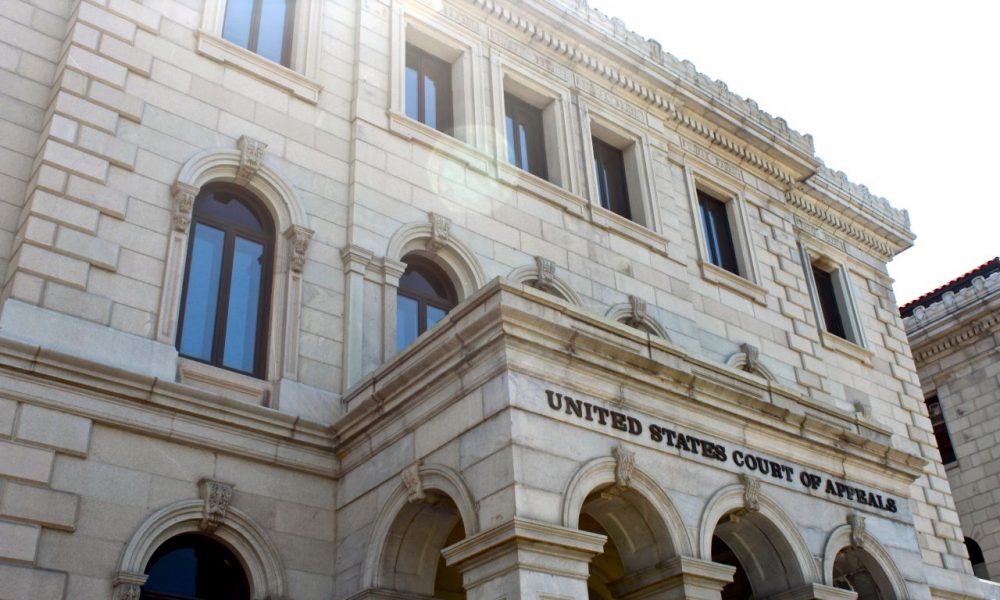Federal Appeals Court Vacates Sentence in North Carolina Armed Robbery Case.
A federal court says a 12-year sentence handed down after a gas station robbery in New Bern can’t stand—because the process, not just the crime, fell short of justice.
Quamaine Donell Smith walked into a gas station in New Bern, North Carolina, with a revolver in hand. It was May 2021. According to court documents, he pointed the weapon at the cashier, demanded money, and then went behind the counter. There, he struck the clerk in the head and grabbed cash and several cartons of cigarettes before leaving the store in a Honda CRV with a co-defendant.
The entire robbery was caught on surveillance video. Smith was arrested and later pleaded guilty in federal court to robbery and using a firearm during a violent crime. He also signed a plea agreement waiving his right to appeal the sentence.
That plea—and the sentence that followed—were supposed to close the book on the case.
They didn’t.
The Court Found a Problem With the Process
Smith was sentenced to 144 months in prison. But on appeal, his attorneys argued the waiver of his appeal rights wasn’t valid. They said the district court judge had mishandled the plea hearing and failed to ensure Smith understood what he was agreeing to.
More than that, they claimed the sentencing itself was flawed—that the judge didn’t address Smith’s mitigation arguments or explain how the 12-year sentence was reached.
This month, the Fourth Circuit Court of Appeals agreed.
A Miscarriage of Justice
In a published opinion issued April 14, the appellate panel vacated Smith’s sentence. Writing for the court, Judge Thacker found that Smith’s appeal waiver had not been made knowingly or intelligently. Enforcing it, the court ruled, “would result in a miscarriage of justice.”
That wasn’t all. The court also called the sentence procedurally unreasonable and ordered that the case be reassigned to a different district court judge for resentencing.
The opinion reflects a strong rebuke—not of the facts of the crime, but of how the legal process was handled afterward.
Smith will remain in federal custody, but his 144-month sentence no longer stands. A new judge will now be assigned to resentence him, this time under closer scrutiny.
The conviction remains in place. What’s changed is the court’s insistence that a guilty plea does not excuse procedural mistakes—or remove a defendant’s right to fair treatment at sentencing.
Opinion: Justice Isn’t Just About What You Did — It’s About How the System Treats You
Quamaine Donell Smith committed a violent robbery. He admitted it. There’s surveillance footage. A plea deal was signed. But despite all that, a federal court has thrown out his 12-year sentence—not because of what happened at the gas station, but because of what happened in the courtroom.
According to the Fourth Circuit, Smith’s plea agreement wasn’t handled properly. The district court failed to ensure he understood the rights he was giving up, particularly the waiver of his right to appeal. The judges went even further, calling the sentencing process itself “procedurally unreasonable.” Smith’s mitigating arguments were ignored, and the judge gave no real explanation for the sentence. The court didn’t overturn the conviction, but it did order resentencing in front of a different judge—a rare move that signals just how seriously it viewed the breakdown.
Some will look at this case and see a man getting off on a technicality. But that’s the wrong takeaway. This isn’t about guilt or innocence—it’s about whether the justice system followed its own rules. Plea deals can’t be treated like routine paperwork. Sentences can’t be rubber-stamped. If the system cuts corners in a case with video evidence and a confession, how do we trust it to protect the rights of people with less? Justice isn’t just about outcomes. It’s about the process. When the courts demand that process be done right—even for the guilty—they’re doing exactly what they’re supposed to do.
📚 Further Reading
🔹 NaphCare Held Liable in Inmate Death After Jail Medical Neglect
A federal jury rules against private medical contractor in the death of Cindy Lou Hill.
Read more
🔹 Tesla Faces Legal Setback Over Defamation Case
The Ninth Circuit tosses Tesla’s arbitration win in a high-profile defamation case.
Read more
🔹 Exxon Sued for Alleged Trespass and Pollution at Texas Refinery
A class-action lawsuit targets ExxonMobil over land and groundwater contamination.
Read more
🔹 Man Charged in Fire at Pennsylvania Governor’s Mansion
A dramatic arson case unfolds inside one of the state’s most iconic buildings.
Read more
🔹 Judge Paula Xinis Challenges Trump-Era Deportation
A Maryland judge reverses a mistaken deportation tied to a federal misstep.
Read more
🔹 Justice for Sara Millerey: A Colombia Tragedy Sparks Global Outcry
The international fight for justice in the killing of a young woman abroad.
Read more





















